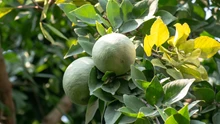
Faba beans, scientifically known as Vicia faba L., have captivated the taste buds and enhanced the curiosity of culinary enthusiasts for centuries. As the third most important legume globally, following soybean and pea, faba beans have a rich history and an abundance of nutritional benefits. Let’s understand the multifaceted world of faba beans, uncovering their culinary versatility, nutritional value, and potential health benefits.
Culinary Delights: Faba Beans in Global Cuisine
Flavors from the Mediterranean: Faba beans have long been a staple in Mediterranean cuisine, where they are celebrated for their unique flavor and texture. Dishes like Medamis (stewed beans) and Falafel (deep-fried cotyledon paste) showcase the versatility of faba beans, offering a delightful fusion of flavors and aromas.
-
Stewed Faba Beans (Fool Medames): A beloved dish in many cultures, stewed faba beans offer a hearty and nutritious meal. Slow-cooked to perfection, these beans are often seasoned with a blend of spices, garlic, and onion, creating a flavorful culinary experience.
-
Bean Cakes (Falafel or Taamia): Transforming faba beans into savory cakes opens up a world of culinary possibilities. Whether enjoyed as a breakfast delicacy or a satisfying supper option, these bean cakes offer a delightful blend of texture and taste.
Asian Inspirations: Across Asia, from China to Ethiopia, faba beans find their way into a myriad of traditional dishes. Bissara (cotyledon paste soup) and Nabet soup (boiled germinated beans) are cherished for their comforting warmth and nourishing qualities while Falafel and other bean-based snacks tantalize the taste buds with their crispy exteriors and tender interiors.
-
Germinated Beans (Fool Nabet): In Egypt, germinated and cooked faba beans take center stage in traditional cuisine. After soaking and germinating the beans, they are cooked to perfection and seasoned with spices, garlic, and fried onion, resulting in a dish bursting with flavor.
Modern Culinary Creations: In the modern culinary landscape, chefs and home cooks alike are experimenting with faba beans in innovative ways. From salads and spreads to desserts and baked goods, faba beans add a unique twist to traditional recipes and offer a nutritious alternative to conventional ingredients.
-
Canned Faba Beans: For convenience and versatility, canned faba beans offer a convenient option for incorporating this nutritious legume into various dishes. Whether used in salads, sandwiches, or soups, canned faba beans provide a quick and easy way to enjoy their wholesome goodness.
Nutritional Powerhouse: Unlocking the Health Benefits of Faba Beans
-
Rich in Essential Nutrients: Faba beans are filled with essential nutrients, including protein, carbohydrates, fiber, phosphorus, iron, potassium, and vitamin B complex. These nutritional powerhouses provide a wholesome and balanced source of energy, supporting overall health and well-being.
-
Potential Medicinal Properties: Beyond their culinary appeal, faba beans harbor potential medicinal properties. The presence of levodopa (L-dopa), a precursor of dopamine, holds promise in the treatment of Parkinson's disease. Additionally, epidemiological studies suggest that favism-induced hemolysis may offer protection against malaria, highlighting the multifaceted nature of faba beans.
-
Note: While faba beans offer numerous health benefits, it's essential to consume them with caution, especially for children. Antinutritional factors present in faba beans, such as phytohaemagglutinin and protease inhibitors, may pose health risks if not properly processed or cooked.
Promoting Awareness and Consumption: Embracing Faba Beans in Modern Diets
-
Educating Consumers: Raising awareness about the nutritional value and culinary potential of faba beans is crucial to promoting their consumption. Through educational initiatives and culinary demonstrations, consumers can learn about the benefits of incorporating faba beans into their diets and explore new ways to enjoy this versatile legume.
-
Innovative Product Development: Food manufacturers and retailers can play a pivotal role in promoting faba beans by developing innovative products that showcase their unique attributes. From ready-to-eat snacks to plant-based protein alternatives, the possibilities are endless for incorporating faba beans into a wide range of food products.
-
Collaboration and Advocacy: Collaboration among stakeholders, including farmers, researchers, chefs, and policymakers, is essential to driving widespread adoption of faba beans. By advocating for policies that support sustainable farming practices and promoting culinary initiatives that highlight faba beans' culinary versatility, we can create a more vibrant and inclusive food system.
(Source: Anil Kumar Singh and BP Bhatt, ICAR Research Complex for Eastern Region)











